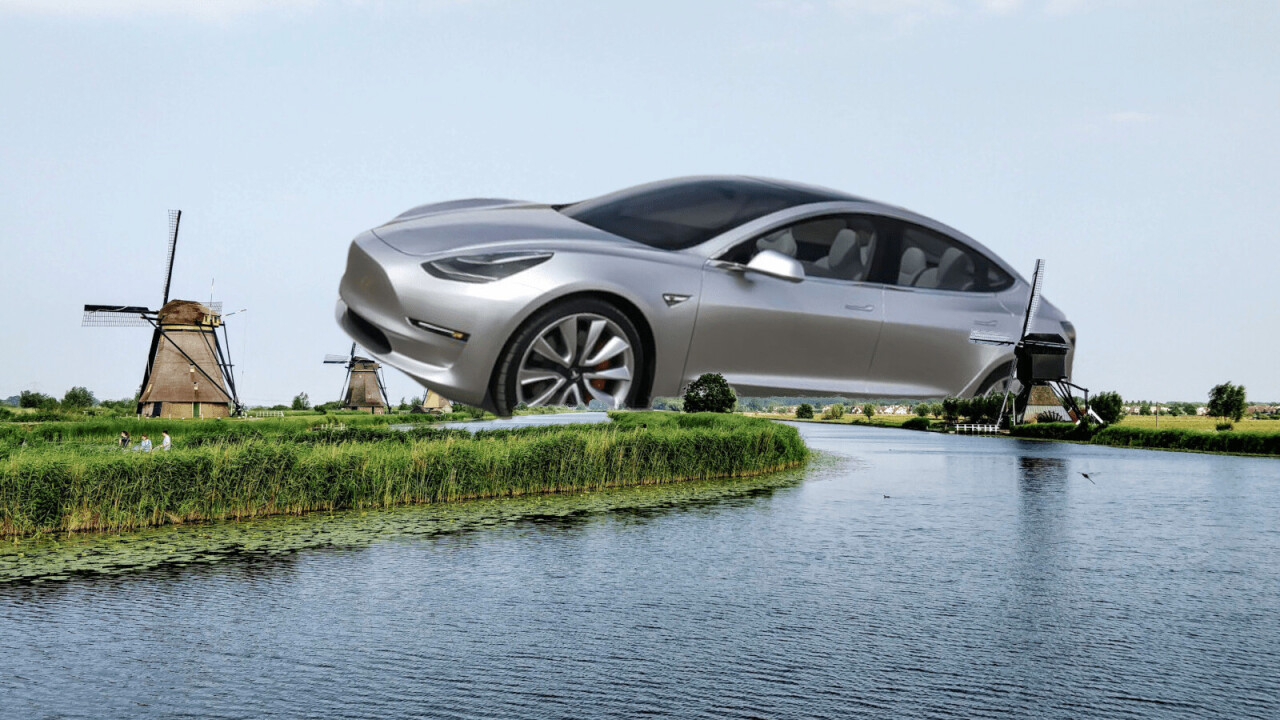
The Netherlands will support greener forms of transport this year by giving drivers money towards the cost of a new electric vehicle (EV). This goes for private buyers of both new and used cars.
According to a report from Dutch news organization RTL, if you live in the Netherlands and buy a new electric car after July 1 this year, you could receive €4,000 ($4,425) towards its cost from the government. If you buy a used, second-hand EV, you could be eligible for €2,000 ($2,211).
[Read: Musk says Tesla is closing in on the 400-mile range mark]
The €4,000 subsidy is only valid on cars up to €45,000 ($49,744), though. It’s really aimed at the lower end of the market; to get drivers out of small petrol and diesel vehicles and into greener alternatives, which are typically less expensive.
To be eligible for the used EV subsidy, the car must meet government standards, and be bought from a specialist dealer. You won’t get the money if you buy the car from the classified ads in a car magazine. According to the report, this is to prevent potentially fraudulent claims for the grant.
What’s more, the Dutch government is also reportedly looking into providing additional non-financial incentives for EV buyers. The government is exploring how it can give guarantees on software updates and EV battery health.
Full details of the subsidy scheme are expected to be announced in the coming weeks.
As more electric cars reach the market over the next five years, the subsidy is to be phased out and will be completely removed by 2025.
The Netherlands is by no means the first country to offer financial incentives to get people out of gasoline cars and into EVs.
The UK government’s scheme hands out a maximum of £3,500 ($4,570) for private buyers to put towards the cost of a “plug-in” car.
So, if you’re Dutch and looking at replacing your gasoline car with an EV, come July, it looks like it’ll be quite a good time to buy.
Get the TNW newsletter
Get the most important tech news in your inbox each week.





